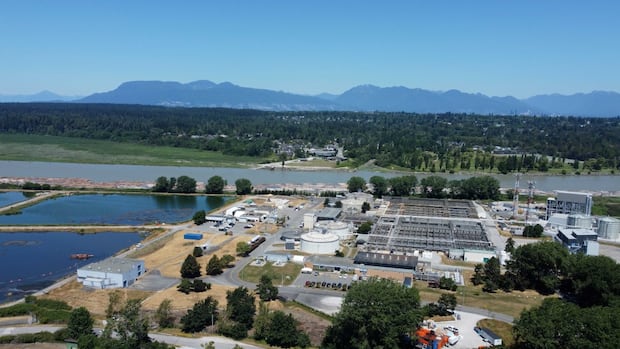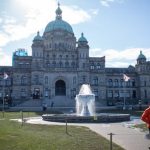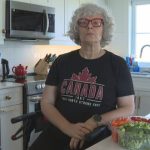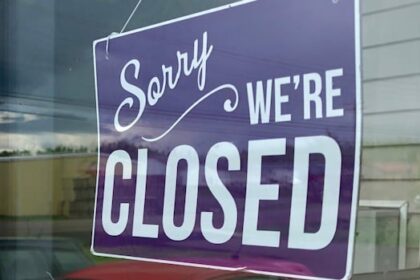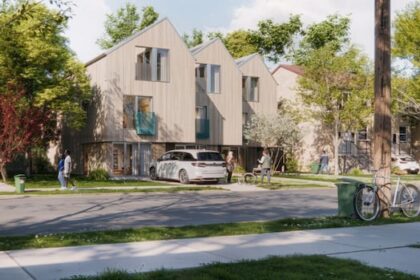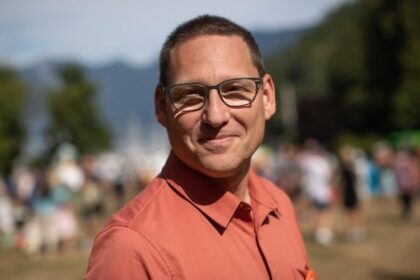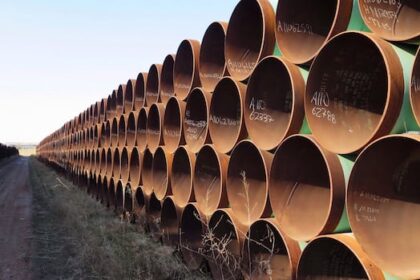British ColumbiaMetro Vancouver has announced it will downsize plans for upgrading the Iona Island wastewater treatment plant — a new approach that will be $4 billion cheaper in the short term, but will likely cost more in the long run.The new plan will defer parts of the original project, which staff say will be more expensive over timeLauren Vanderdeen · CBC News · Posted: Oct 06, 2025 10:54 AM EDT | Last Updated: 3 hours agoMetro Vancouver Regional District board directors voted Friday to re-scope the required upgrades on the Iona Island wastewater treatment plant, reducing the short-term costs by about $4 billion. (Metro Vancouver)Metro Vancouver has announced it will downsize plans for upgrading the Iona Island wastewater treatment plant — a new approach that is expected to be $4 billion cheaper in the short term. The original plan was a full re-build of the sewage treatment plant with a budget of almost $10 billion.The new $6-billion plan is to upgrade the existing facility in phases to comply with provincial and federal regulations for “secondary-level” treatment, which removes up to 90 per cent or more of pollutants typically found in wastewater, such as small suspended solids, according to Metro Van.The Iona Island plant, located in Richmond, B.C., is currently only a “primary treatment” facility that removes materials that float or settle out by gravity and removes about half of dissolved organic materials.Secondary treatment removes more pollutants from the treated wastewater that is sent back into waterways such as the Fraser River. (Metro Vancouver)The plant, built in 1963, serves about 750,000 residents, mostly in Vancouver, along with small parts of Burnaby and Richmond.Phased approach to cost more in long runMetro Vancouver Regional District chief administrative officer Jerry Dobrovolny said the phased approach will cost more over time to fully upgrade the facility, as the prices of materials and labour rise, but that it was necessary to spread the spending out. Otherwise, he said, the cost is “too big of a lift, and the impact on our budgets for the next 15 years are just too dramatic.”Board directors on Friday also voted to use a treatment technology that Dobrovolny hailed as particularly flexible.The “membrane bioreactor technology” uses modules that are installed in cells, according to Dobrovolny, allowing staff to react to real conditions.”If population speeds up, and is going faster, we add some more cells to be compliant. If population slows down, we may have opportunities to save.”Metro Vancouver is planning to use a new method to achieve secondary treatment status for the Iona Island wastewater treatment facility. Orange indicates the existing plant, green shows the new approach, and grey areas are where future works can be built, according to staff. (Metro Vancouver)Staff expect the project to be completed by 2039, according to the Metro staff report presented to directors Friday.Who’s paying?Richmond mayor and chair of Metro Vancouver’s liquid waste committee Malcolm Brodie noted the importance of updating sewage treatment facilities.”This has been a long time in coming, and it’s not like there’s a choice. I mean, this is extremely fundamental and important infrastructure in our cities…. You need sewage treatment.”He said it’s too early to say how much residents will be paying, but added the lower initial price tag will make the project “more palatable” to taxpayers, particularly in Vancouver, where residents will bear more of the tax increase for the project.Board chair and Burnaby Mayor Mike Hurley said the basic explanation of the funding formula is that residents who use the Iona plant as their primary treatment facility will pay a bit more, while the rest of the region will pick up a smaller percentage of the cost.The pink section of this map indicates the Metro Vancouver sewerage area served by the Iona Island wastewater treatment plant. (Metro Vancouver)Hurley stressed that the federal and provincial governments need to come to the table with funding.He said, so far, each level of government has given $250 million — and he expects that equal partnership to continue.”We’re expecting a three-way split between Metro Vancouver and the other two orders of government, something in that range,” he said.ABOUT THE AUTHORLauren Vanderdeen is a web writer for CBC British Columbia. She formerly worked for community newspapers, including the Burnaby Now and New West Record. You can reach her at lauren.vanderdeen@cbc.ca.With files from Michelle Morton
Metro Vancouver votes to scale down sewage treatment project from $10B to $6B
